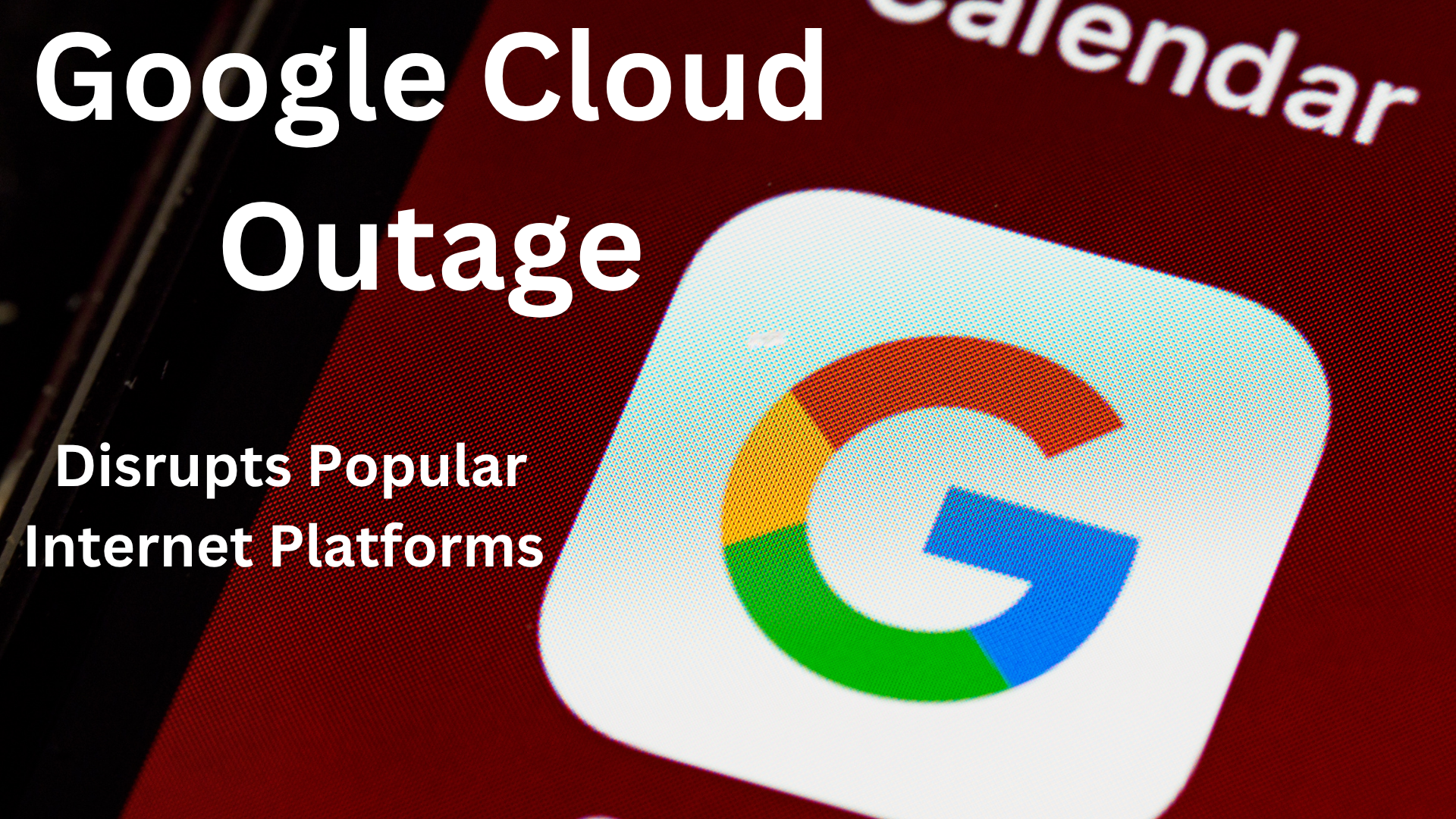 Introduction
Introduction
On June 12, 2025, the tech world witnessed yet another major disruption as Google Cloud Platform (GCP) experienced a widespread outage. From small businesses to global corporations, users found themselves unable to access essential services, causing panic, loss of productivity, and raising questions about the reliability of even the most trusted cloud providers.
 Background: What is GCP?
Background: What is GCP?
Google Cloud is a suite of cloud computing services that powers everything from storage to machine learning and analytics. Companies like Spotify, Snapchat, PayPal, and many startups rely heavily on GCP infrastructure for smooth operations.
So when GCP falters, the ripple effects are massive.
 Timeline of the Outage
Timeline of the Outage
Initial Reports
Users began reporting issues with Google Cloud services around 2:00 AM UTC. These reports escalated rapidly on social media and downtime monitoring platforms like DownDetector.
Services Affected
Google Cloud Console
Compute Engine
BigQuery
Kubernetes Engine (GKE)
Cloud Functions
Regions Impacted
While the outage was global, the Asia-Pacific and US regions experienced the most severe disruptions.
 Core Services Disrupted
Core Services Disrupted
Google Cloud Console
Admins couldn’t manage cloud projects or see real-time analytics.
Compute Engine
Virtual machines became unresponsive, halting apps and backend operations.
Google Kubernetes Engine
Containers couldn’t scale, and deployments failed.
BigQuery and Cloud Storage
Data analysis pipelines stalled, and critical files became inaccessible.
 Global Impact
Global Impact
Affected Industries
Finance: Payment processing delayed.
Healthcare: Data access issues in hospital apps.
Media: News and streaming platforms slowed or stopped.
Popular Websites and Apps Down
Some apps built on GCP, including e-commerce and AI-driven platforms, reported extended downtimes.
User Base Affected
An estimated 45 million users experienced service degradation in the first few hours.
 Social Media Reaction
Social Media Reaction
Trending on Twitter
#GoogleCloudDown trended globally within 30 minutes of the outage.
Tech Communities Frustrated
Developers and sysadmins voiced concerns about overreliance on centralized cloud systems.
 Official Response by Google
Official Response by Google
Acknowledgment
Google Cloud’s status dashboard updated at 2:45 AM UTC, confirming service disruptions.
Status Dashboard Updates
Google provided hourly updates, assuring users that the engineering team was actively working on a fix.
Root Cause Analysis (RCA)
A preliminary report indicated a faulty network configuration push was to blame.
 Root Cause of the Outage
Root Cause of the Outage
It was identified that a routine network update accidentally rerouted traffic through incorrect internal paths, overloading key data centers. This led to cascading failures across services relying on internal APIs.
 Recovery Process
Recovery Process
Timeline for Restoration
Steps Taken
Rolled back the faulty configuration
Restarted impacted services
Increased redundancy in traffic routing
Were All Services Restored?
Yes, but minor glitches were reported throughout the day by some users in Asia and Australia.
 Lessons Learned
Lessons Learned
Redundancy is Everything
Even cloud giants aren’t immune. Businesses must plan multi-cloud or hybrid-cloud setups.
Backup Isn’t Optional
Always have offline backups or alternative compute services.
 What This Means for Users
What This Means for Users
For Enterprises
Downtime means money lost. Expect contractual SLA (Service-Level Agreement) reviews.
For Developers
Workflows must now include fallback strategies.
For Individual Users
Apps may have been down temporarily, but trust in cloud stability is dented.
 Preventive Measures for the Future
Preventive Measures for the Future
Google’s Plan
More granular testing for network changes
Automated rollback triggers
Enhanced regional isolation
What Users Can Do
 Comparison with Past Outages
Comparison with Past Outages
Google Cloud’s History
How Others Compare
 Expert Opinions
Expert Opinions
Industry Analysts
“Cloud is powerful, but not perfect,” said a Gartner expert.
Future Outlook
Expect more pressure on cloud providers to be transparent and resilient.
 Conclusion
Conclusion
The June 12 Google Cloud outage was a wake-up call. As we increasingly rely on cloud infrastructure for nearly every digital interaction, the importance of robust backups, proactive monitoring, and diversified cloud strategies has never been clearer. While Google acted swiftly, the incident reinforces the reality that no system is invincible.
 FAQs
FAQs
1. How long did the Google Cloud outage last?
The outage lasted approximately 7.5 hours from initial impact to full recovery.
2. What caused the Google Cloud outage?
A network configuration update caused traffic misrouting, overloading systems and causing failures.
3. Which regions were most affected?
Asia-Pacific and U.S. East saw the most noticeable service degradation.
4. Was user data lost during the outage?
No user data was lost. However, access to it was temporarily interrupted.
5. How can I prepare for future cloud outages?
Use multi-cloud strategies, implement backups, and subscribe to cloud status alerts for timely updates.


 Introduction
Introduction Background: What is GCP?
Background: What is GCP? Timeline of the
Timeline of the  Core Services Disrupted
Core Services Disrupted Global Impact
Global Impact Social Media Reaction
Social Media Reaction Official Response by Google
Official Response by Google Root Cause of the Outage
Root Cause of the Outage Recovery Process
Recovery Process Lessons Learned
Lessons Learned What This Means for Users
What This Means for Users Preventive Measures for the Future
Preventive Measures for the Future Comparison with Past Outages
Comparison with Past Outages Expert Opinions
Expert Opinions Conclusion
Conclusion FAQs
FAQs